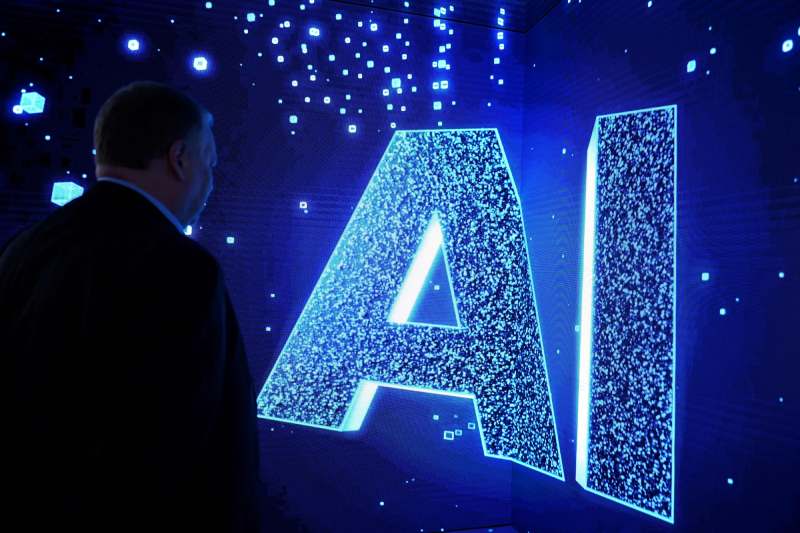Throughout the year, a new wave of artificial intelligence startups has upended Silicon Valley and the larger business community, but one thing has remained constant: Big Tech continues to hold sway.
Following Microsoft Corp.’s $10 billion investment in OpenAI in January, other tech behemoths hurried to collaborate with top AI startups via funding and cloud computing agreements. At a $4.5 billion valuation, Salesforce Inc. spearheaded a round in Hugging Face. Alphabet Inc. and Amazon.com Inc. made billion-dollar investments in Anthropic, an OpenAI rival. And it appeared that Nvidia Corp. supported nearly all notable AI startups.
Ultimately, this means that a large number of the most promising AI startups now rely significantly on the traditional tech industry heavyweights for infrastructure and funding. Regulators are beginning to take notice of that dynamic.
Competition authorities in the US and the UK are once again scrutinizing Microsoft’s collaboration with OpenAI. The Biden administration has assigned the US Federal Trade Commission the responsibility of advancing “a fair, open, and competitive AI ecosystem.” Regarding the question of whether or not large cloud computing contracts are anti-competitive, the agency has previously asked for public input.
“What regulators might be concerned about is that the story of Big Tech’s strategic investment in AI startups could have the potential to become the story of Big Tech’s AI monopoly,” stated Ngor Luong, a senior research analyst at Georgetown University’s Center for Security and Emerging Technologies who specializes in AI investment trends.
These agreements with Big Tech can be an important lifeline for AI companies. The technology that powers AI chatbots like ChatGPT, large language models, is very expensive and computationally demanding to build. Big tech companies belong to the small group of companies that have the resources and infrastructure to back these initiatives.
These acquisitions can help Big Tech companies maintain control over a competitive and quickly changing market, as some were taken aback by the tremendous success of OpenAI’s ChatGPT a year ago. Tech behemoths can increase demand for their goods through these alliances, whether it’s Nvidia’s chips or Microsoft, Google, and Amazon’s cloud computing services.
In a blog post this month, Nvidia said it has made “more than two dozen investments” this year. “These partnerships stimulate joint innovation, enhance the NVIDIA platform and expand the ecosystem,” the company said.
Apart from OpenAI, Microsoft has also made investments in billion-dollar AI startups like Adept and Inflection AI. However, these transactions pale in comparison to the $13 billion that Microsoft has already committed to the ChatGPT company.
Sam Altman, the CEO of OpenAI, was briefly fired in November, a move that highlighted Microsoft’s special relationship with the startup. Along with other investors, Microsoft CEO Satya Nadella was a major factor in getting the board to change its mind. Microsoft had previously declared that it would bring on Altman and his OpenAI colleagues to establish a new Microsoft AI division.
Microsoft clarified that it does not hold a conventional stake in OpenAI in response to regulators’ concerns. The company stated last week that “it is important to note that Microsoft does not own any portion of OpenAI and is simply entitled to a share of profit distributions.”
While Alphabet, Microsoft, and Amazon have all been actively supporting AI startups this year, Apple Corp. and Meta Platforms Inc. have been largely absent from these kinds of transactions.
Apple Inc. launched an internal chatbot known as “Apple GPT” and developed its own large language model known as Ajax. In the meantime, Meta has partnered with Microsoft and Amazon in addition to having an open source large language model.


 Entertainment2 weeks ago
Entertainment2 weeks ago
 Entertainment2 weeks ago
Entertainment2 weeks ago
 Entertainment3 weeks ago
Entertainment3 weeks ago
 Entertainment2 weeks ago
Entertainment2 weeks ago
 Entertainment2 weeks ago
Entertainment2 weeks ago
 Entertainment2 weeks ago
Entertainment2 weeks ago
 Entertainment3 weeks ago
Entertainment3 weeks ago
 Entertainment2 weeks ago
Entertainment2 weeks ago














